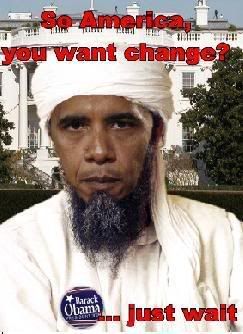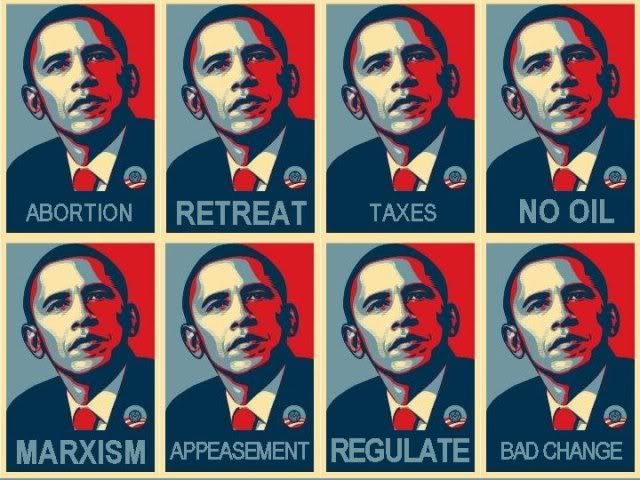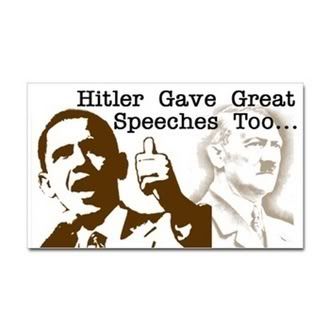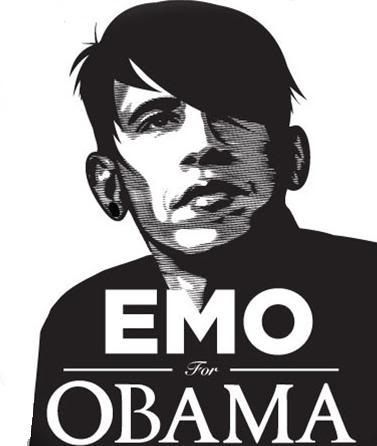The fictitious Left
Olavo de Carvalho
Diário do Comércio, 5/5/2009
Among liberals and conservatives, in Brazil and the rest of the world, only a few have a clear view of who is one's enemy and how to fight him. The majority fights only against an idealized Left, a trompe l’oeil fabricated by the Left to be consumed by their adversaries as a stupefying, paralyzing and incapacitating drug. The model of this ruse is a copy of something that existed historically: a humanitarian, democratic, anti-communist Left, only separated from the Right by a different conception of the means - more statist than capitalist - to be used with the goal of realizing values that were, in the end, the same ones from the other side - liberty, human rights and a decent life for all.
Although vaguely inheriting the reformism of Eduard Bernstein and Karl Kautsky – the “renegade”, as Lenin called him –, this Left had only became a prominent actor in the Western media during the Spanish civil war, when the murderous violence started by the Stalinist command against their own ranks served as an alert call to many leftists, making them understand that communism was at least as destructive as nazism. The Ribbentropp-Molotov pact of August of 1939 had completed the delusion. Some had switched sides completely, becoming conservatives. Others, refusing any loyalty to the Soviet government, but not denying the socialist ideal, ended up integrating the social-democrats and workers' parties and becoming good allies of the conservatives in the fight against communism, but continuing to fight them in the ground of social policies. George Orwell and the philosopher Sidney Hook are famous examples. The first one became, with his books Animal Farm and 1984, one of the greatest creators of the anti-communist language, designed to make a parody and implode the communist jargon. The second one was the main organizer of the American Committee for Cultural Freedom, the only serious enterprise ever attempted - in 1949-50, with the help of CIA - to reunite anti-communist intellectuals and offer some resistance to the Soviet's massive culture attack started thirty years before.
It is not necessary to say how much the existence of a prestigious anti-communist Left had annoyed the Soviet establishment. The policy of “pacific coexistence” inaugurated by Nikita Kruschev had as one of its main purposes to reintegrate the army of stragglers into the communist strategy. The success of this operation was complete. Already in the 70s, as the writer Vladimir Bukovski would find out in the Moscow archives, virtually all of the social-democrat media on Europe was subsidized and controlled by the KGB (v. Jugement à Moscou. Un Dissident dans les Archives du Kremlin, Paris, Robert Laffont, 1995). In the United States, infiltrated and dominated by both undercover and declared agents of the revolutionary Left, the Democrat Party, which until the 60s worked as the ideal refuge of the anti-Soviet leftists, had drifted more and more to the Left, until it assumed the flag of the most radical and intolerant anti-Americanism. The bibliography that documents this transformation is abundant, not leaving any reasonable excuses for the self-proclaimed specialists in foreign policy to ignore the phenomenon, as ours had ignored it in whole. See, for example, David Horowitz and Richard Poe, The Shadow Party, How George Soros, Hillary Clinton and the Sixties Radicals Seized Control of the Democratic Party, Nashville, TN, Nelson Current, 2006; James Piereson, Camelot and the Cultural Revolution: How the Assassination of John F. Kennedy Shattered American Liberalism, New York, Encounter Books, 2007; Phil Kent, Foundations of Betrayal. How the Liberal Super-Rich Undermine America, Johnson City, TN, Zoe Publications, 2007.
The transfiguration of the American moderate Left in an agent of the radical Left has reached its apex with Obama's presidency, who ostensibly protects terrorist organizations and criminalize any conservative resistance, at the same time it that continues to display the conventional signs of democratic progressiveness (v. http://truth11.wordpress.com/2009/04/22/former-presidential-candidate-alan-keyes-has-given-perhaps-his-most-dire-warning-yet-saying-that-the-obama-administration-is-preparing-to-stage-terror-attacks-declare-martial-law-and-cancel-the-2012/, http://www.onenewsnow.com/Politics/Default.aspx?id=494798, http://www.onenewsnow.com/Politics/Default.aspx?id=490720 and http://www.worldnetdaily.com/index.php?pageId=).
In Latin America, the incarnation of the "moderate Left", the Worker's Party, is discreetly the coordinator of the Foro de São Paulo, that is, the maximum strategist of the revolutionary violence in the continent.
In summary, the democratic, civilized Left, loyal competitor of the conservatives, does not exist anymore as an independent political force. Financing and hiding terrorist and subversive movements everywhere, and imposing under a different guise the same policies that would be rejected by the people if presented with the communist label, the "moderate Left" is an enemy even more powerful to the conservatives than the card-carrying communists themselves, who would not have any power at all without the former.
The difference between the two Lefts is that one is willing to share power with the conservatives, according to the regular democratic rotation, while the other is not content to win these adversaries in the elections, but attempts to destroy them completely, marginalizing, criminalizing and expelling them forever not only from the politics but from social life, if not their very physical existence. The other difference is that the second Left is the only one that exists in reality; the other, only in the residual imagination of the Right.
If the Left still makes use of the beautiful image of democratic moderation created in the battlefields of Spain, it is only to fool their enemies. However, if one continues believing in its existence and imagines that is fighting loyal adversaries when in reality one is fighting murderers and revolutionaries, this is something that comes from an unforgivable intellectual and moral cowardice, which is suicidal as any other kind of cowardice.
Message To Diggers
Wednesday, May 6, 2009
Monday, October 13, 2008
Saturday, October 11, 2008
How Modern Liberalism came to existence
 How Modern Liberalism came to existence
How Modern Liberalism came to existenceThe modern liberals, a.k.a. cultural marxists, emphasize that they don't have anything to do with the classic marxism, however the modern liberalism is not only a culture against Christianism, but also tries to fool people proposing anti-Christian ideas as if they were Christian. For example, the idea of worldly peace without Christ, symbolized by the logo of the inverted cross with the broken arms (peace logo).
Democracy needs a moral basis of mutual respect where left and right can get along. But with the cultural marxism hegemony, things have changed in such a way that what was considered leftist has became center; what was the ultra-radical left, has became the current left; and what was right, is in the endangered species list and disappearing very rapidly from the political scenario.
The communist manifesto of Marx called the proletarian workers from around the world to unite and proposed that they should revolt against the property owners. From this perspective, Marx foresaw a great conflict across Europe in which the "oppressed workers" would attack "the oppressors bosses" according to the interests of their economic class.
However, the conflict occurred not according to the Marxists' vision. The First World War started in 1914 and lasted until 1919. The German Kaiser said "there are no more parties, we are all Germans" and turned workers against workers from other countries, each defending the "interests of their bosses."
In 1917, the Bolshevik revolution gave hope to Marxists, although all other attempts to communist revolution failed.
In 1919, the Spartacus revolution in Berlin - with Karl Liebknecht, Rosa Luxemburg and Spartacus - failed.
Also in 1919, there was a Soviet government in Munich, whose interim government failed to attract the support of workers.
In Hungary, the provisional government of Bela Kun, with involvement of the philosopher Georg Lucács, also failed.
In Italy there was a unionist revolt in Turin, which also failed.
These failures were a major problem for the Marxism theory: the reality does not follow this theory! A normal brain would have discarded any theory that it is not compatible with reality, but the Marxist brain is not normal: if the reality does not confirm the theory, to hell with the reality!
Antonio Gramsci and Georg Lukács concluded that the Western culture "alienated the proletarians and prevented them from fighting against the interests of other classes." They concluded that Russia was not "Western" enough, so the revolution was successful there for that reason.
In their view, Western culture is sustained in 3 columns: Roman law, Greek philosophy and Judeo-Christian morality.
To deploy socialism in the West, they concluded that it was necessary to destroy Judeo-Christian morals. That is why the new Marxism, the cultural Marxism, or modern liberalism aims to destroy anything that is Jewish and Christian.
However, this has created a schism in Marxism. In the West, they began to fight for a different kind of Marxism that was different from the orthodox Marxism practiced in the East, behind the Iron Curtain.
The CULTURAL MARXISM
Maurice Merleau-Ponty, a French philosopher, coined the term "Western Marxism" to differentiate that heterodox Marxism which was somewhat heretical in the eyes of communist Russia. Stalin hated the Communists in the West who did not accept the orders from Moscow despite also being Marxists. Later, the KGB welcomed these new collaborators, seeing how they could be useful, and started paying them.
Several famous writers and philosophers in the West were participants in the Western Marxism. Ernst Bloch (important influence on the European students revolution), Walter Benjamin, Jean Paul Sartre, Louis Althusser, Jürgen Habermas (who once discussed with the future Pope, who was then Cardinal Ratzinger).
In 1923, Germany held the Week of Marxist Labor. Marxist philosophers gathered to discuss the crisis of Marxist theory (why the reality was not following the theory?) That crisis had existed since 1919. At that meeting, stood out Felix Weil and Georg Lukács. Felix Weil came from a rich family and spent his dad's money creating and sustaining financially the Institute for Social Research in Frankfurt in 1924: the famous School of Frankfurt.
This group originally intended to use the name "Marx-Engels Institute," mirroring the office of the same name in Moscow, but in the West they have decided that there was greater advantage in not identifying themselves as Marxists. The institute published the first volume of the General Works of Marx and Engels (a.k.a. MEGA - Marx-Engels-Gesamtausgabe) at the same time the office of Moscow did.
These rich young studied the German society and the Western thinking to figure out how to destroy it. With the rise of Hitler to power and his persecution of Jews and Marxists, they fled to the United States.
A main feature of the cultural Marxists is that they do not predominantly want armed struggle, however they want to "occupy territories" in the culture, preaching their doctrines in the universities, in the media, in churches or anywhere where there is speech.
Several of these thinkers, who did not identified themselves as Marxists, infiltrated and taught in American universities. Of these, it is worth mentioning Teodor Adorno, Max Horkheimer and Herbert Marcuse, who were teaching at Columbia University, in New York. Horkheimer and Adorno returned to Europe after the end of World War II and made many disciples. Marcuse worked for the CIA (then called the OSS) in anti-Nazi propaganda projects and then moved to California. At the time the student revolution of 1968 flared up, he was teaching at the University of San Diego.
 Marcuse has greatly influenced the culture of the West, changing the Western marxist thought into a kind of intellectual marriage between Marx and Freud. The Marxists wanted a revolution and so they needed angry people. The revolt of workers, exploited by classical Marxism, was demonstrably inadequate. It was necessary to find more angry people. Marcuse discovered the youth and the sexually repressed people.
Marcuse has greatly influenced the culture of the West, changing the Western marxist thought into a kind of intellectual marriage between Marx and Freud. The Marxists wanted a revolution and so they needed angry people. The revolt of workers, exploited by classical Marxism, was demonstrably inadequate. It was necessary to find more angry people. Marcuse discovered the youth and the sexually repressed people.Their discourse then became: "the capitalist society" - that is, Western society - "is a repressive society. It oppresses people, repressing them sexually. You can not freely exercise your sexuality. Revolt!" They wanted to destroy the Christian morals but did not openly confess their intentions.
These Marxist "preachers" proposed the liberation of sexuality, abortion, homosexuality and divorce, calling the monogamous marriage as "bourgeois morality" (codename for Christian morality).
Erich Fromm, Cornelius Castoriadis (who took part in the student revolution in Paris), Michel Foucault (one of the first victims of AIDS - he was a drug addict and a quite promiscuous homosexual) and Herbert Marcuse were the biggest influences in universities. When the student revolution of 1968 broke out, Marcuse, Foucault, Castoriadis and others helped the students in Paris.
In Hollywood, the Marxists also worked to destroy the "bourgeois morality". About twenty of them were denounced by Senator Joseph McCarthy but he ended up being victim of the ideological police.
After the fall of the Berlin Wall, the Venona Code was discovered in the KGB archives and it revealed that not only twenty, but more than a hundred Marxists were working in Hollywood under orders of KGB. The book "Venona Code" explains in detail these historical facts.
In 1955, Marcuse wrote "Eros and Civilization", a widely used book in universities which became the "bible" of the hippie revolution. According to its text, the capitalist society leads to war and sexual repression, therefore, "make love, not war," "Love and peace, dude!"
To have the courage to de-repress, some young people, who were also raised in Christian families, needed to take drugs so they could practice those sexual perversions (the "sexual liberation"). With that came Woodstock and the protest against the war in Vietnam. The young and the perverted served as fuel for the engine of Marxist revolution.
CASE STUDY: BRAZIL
In 1964, Brazil was a very conservative country, with a society capable of uniting for the "March of Families for Freedom with God" in protest against the impending revolution of president João Goulart, who among others was pushing the country towards a Cuban-style communist dictatorship.
That has changed with the indoctrination through the widely watched soap operas of Rede Globo - among several other occupied spaces in the media. There were many Communists working in the Globo organizations and other bodies of the mainstream Brazilian media. Roberto Marinho (big media owner) reacted against the military regime and protected the communists in the Globo enterprises: "Let me handle my Communists by myself." Of these communists, the most notable - Dias Gomes and Janete Clair - dominated the 70 with their soap operas.
In Dias Gomes' biography, "Just A Subversive", he recounts preaching divorce - it was taboo at that time - in his 1970 soap opera "Red Summer". In his second 1970 soap opera, "On Earth just as it is in Heaven", he attacked the Catholics for their celibacy. In the 1975 soap opera "Roque Santeiro", which had been censored by the military government, he attacked Christianity by way of Catholicism.
In "Roque Santeiro," Father Albano (a liberation theology priest) and Father Hipólito (supposedly a conservative) discussed before the statue of Roque Santeiro, who had died and became worshipped as a Catholic saint. Under the protest of priest Albano, corrupt Father Hipólito sold images of Roque Santeiro and tried to cover up the fact that Roque Santeiro had not died. The intent of Dias Gomes was to make people believe that Christianity created false myths and the denounciation of these myths was necessary to prevent Christians from taking advantage of people.
The military government had no idea about cultural Marxism. They searched the house of Dias Gomes looking for weapons and books teaching guerrilla tactics and they didn't find anything. Only with wiretapping they discovered something when Dias Gomes explained his intentions to his friend Nelson Werneck Sodré: "But will the censors miss this?" "... Doing it this way it will pass. The military is very stupid!" That conversation was described in Arthur Xexéo's book, "Janete Clair, the Maker of Dreams." Once the government learned of it, they outlawed "Roque Santeiro" and explained: "The novel contains affront to morality, public order and good customs, and attacks the church."
The general Golbery do Couto e Silva, with his "theory of the pressure cooker," was one of the main culprits for the misfortunes that occur today in Brazilian universities. "Every pressure cooker should have a valve." The valve that he handed to the Marxists in a platter were the universities.
Although there were military government agents watching the lessons of the Marxists in the universities, they could preach anything, provided they would not touch the topics of land redistribution and guerrilla. They were free to talk about abortion, divorce, free sex because that was not identified as Marxism. Today the universities are completely dismantled in terms of Christian culture, becoming barely disguised anti-Christian factories, accusing the conservatives and denouncing their "bourgeois morality" and their "backward thinking".
The politically correct is a Marxist invention. It was created to try to convince people that Christian moral convictions were flawed and that it would be necessary to make everybody equal.
On September 7th (Brazilian independence day), a date that should be a commemoration of patriotism, the CNBB (National Conference of Brazilian Bishops, the part of Brazilian Catholicism dominated by liberation theology) had created the "Cry of the Excluded". The "excluded" is a category created by Pierre Bourdieu to perpetuate the idea of class warfare.
In Ibiúna in 1968, there was a congress of the UNE (National Union of Students), under the leadership of the current left-wing politicians who are in the Brazilian government and the opposition. The Marxists Aldo Rebelo (PC do B - Communist Party of Brazil), Jose Serra (PSDB - Democratic-Socialist Party of Brazil) and Jose Dirceu (PT - Workers' Party) were in that conference and all of them belong to currently hegemonic parties.
In today's Brazil, dominated by the cultural Marxism, there are virtually only leftist parties. They all try to enforce and encourage sexual promiscuity, abortion and homosexuality, racial conflict and environmental hysteria.
The PT calls the PSDB "right-wing", but the PSDB is not right-wing. PSDB is to the right of the PT but is still a left-wing party. The PSOL accuses the PT and the Lula government of not being leftists, but that only means that the PSOL is further left than the PT.
The Brazilian right today no longer exists in the form of parties, but as the Marxists still need an imaginary enemy, they use the DEM as a scarecrow and punching bag. The DEM is the former PFL, a party created to oppose the military regime which was taken by opportunists and today they form a mediocre, subservient and easily handled opposition.
IDEOLOGY PATROLLING - "You shall not disagree with the Left!"
The leftist hegemony today is maintained largely through ideological policing.
If someone dares to denounce the evil deeds of the Marxists, they use the tactic proposed by Lenin: jump on the victim collectively, making numerous allegations.
"You are a CIA agent, you are paid by Wall Street, you are bourgeois, you are the white elite, you are homophobic, you're a fool" - all possible and imaginable accusations and slander are used with the aim of intimidating other people so that they dare not agree with whoever denounced the evil deeds of cultural Marxists.
The goal is to make others afraid and make them think twice before speaking or denounce the same things - that is the ideological policing.

Labels:
abortion,
christianity,
communism,
feminism,
gay supremacists,
politics,
socialism,
world
Sunday, September 7, 2008
Documentary about the communist subversion in the US media
This is an interview with Yuri Alexandrovitch Bezmenov (*1939 +1997), a Soviet dissident who was a KGB operative and employee of the Novosti agency.
The interview is conduced by G. Edward Griffin, political commentator and author of The Creature from Jekyll Island. This interview took place in 1984.
The interview has been divided in 9 parts for YouTube and the play list is here.
Understandably, Yuri Bezmenov, being a foreigner with counterintelligence background, underestimated American society's capacity to resist the onslaught of Soviet propaganda.
With the fall of the evil empire, this interview explains the communist plans that fortunately failed, a horrible scenario from which America and the world have escaped, even though the US media continues to be infected.
The interview is conduced by G. Edward Griffin, political commentator and author of The Creature from Jekyll Island. This interview took place in 1984.
The interview has been divided in 9 parts for YouTube and the play list is here.
Understandably, Yuri Bezmenov, being a foreigner with counterintelligence background, underestimated American society's capacity to resist the onslaught of Soviet propaganda.
With the fall of the evil empire, this interview explains the communist plans that fortunately failed, a horrible scenario from which America and the world have escaped, even though the US media continues to be infected.

Monday, September 1, 2008
Sunday, August 31, 2008
Saturday, August 30, 2008
Differences between leftists/liberals, socialists and communists
If we discount the ignorance of the typical communist and his use of ideology as an excuse to relieve internal frustrations, we realize that there is a difference between leftism, socialism and communism.
All of the three have in common the fascism. "Fascists" is a word very appropriate for lefitsts. Fascist is the one who proposes that the state dominate everything and this is what the leftists preach.
However, when the leftist call someone a "fascist", he is not concerned about the meaning of this word, he just wants to use it to offend and express his hate. With misuse, words end up losing their power of precising what one wants to express and the discourse loses its meaning to the lay people.
The word "communist" is another that has double meaning: it can refer to both cultural marxism and to the ideology that preaches the end of private property and the state. That is why lay people do not understand when we call some politicians communist. They say "He, a communist? Absurd!" and then ignore the rest of the message, not understanding that what was meant is that the politician mentioned is a representative of cultural marxism.
There are differences between leftism, socialism and communism. Communists and socialists are leftists and every communist is socialist. But there are a few leftists who are not socialists and there are a lot of socialists who are not communists. How? For example, a Fabian socialist is not communist.
To better visualize this, you can imagine that there is a box labelled "Leftism (cultural marxism)". Inside of it, there are other smaller boxes and one of them has the label "Socialism". And inside of the Socialism box, there are other boxes and one of them has the label "Communism".
A true communist wants the end of private property in order to have equality (or so they say) but they also preach the end of state.
Those are in contradiction because the end of private property can only be achieved through the monopoly of power of coercion and whoever monopolizes the coercion becomes the de facto state - a perverse state that instead of guaranteeing freedom and property rights, guarantees robbery and tyranny. Thus, communism is something that will never exist and will be merely an excuse to take power. Communism is absurd - but there are those who want the absurd and do not recognize it.
In the strict sense, most of the communist parties are not merely fascists (preaching, for example, the "nationalization" of private companies and friendlier foreign relations with totalitarian countries such as China, Cuba, Vienam, North Korea). However, these parties are part of "communism" in the ample sense of the word, that is, cultural marxism.
The socialists consider the state as the ideal agent to foster equality. It is obvious that there are socialists that say one thing and desire the opposite, but the declared intention of the socialists is to make all properties belong to the state, who would give the citizens a very limited control over properties.
There are those who label themselves communists, but they are in fact socialists. If, for example, Fidel Castro say he is communist, he's lying. He can be socialist and fascist, but he is not a communist because this Cuban dictator admits the existence of the state. Fidel is "communist" only in the ample sense: Fidel, like Guevara, is an icon of the cultural marxism.
The leftist is more or less those who are "against" and those who preach moral relativism, that is, disregard for the standards of moral conduct. Some of them may not give attention to socialism, but some of them steal, cheat, kill, are promiscuous, want things for themselves without giving anything in exchange, consider everything relative, etc.
Example: it is very well possible that an abortionist doesn't care or completely ignore the equality that socialists and communists preach. It is also possible that several of those gay supremacy militants do not want the end of private property.
Those types of abortionists and gay militants are leftists, but they are not necessarily socialists or communists. However, all of them are part of "communism", that is, cultural marxism.
Thus, leftism is a general attitude of moral denial, socialism is also an attitude of moral negation but more directed against property and individual rights. And communism is an attitude of moral negation that emphasizes the denial of property and individual rights and the state too.
Leftism, socialism and communist do not have existence by themselves and are instead defined by the negation of something that exists. Therefore, this is trying to define and delimit things that are contradictory by themselves and of course that this is not a perfect explanation - it takes into account only some of the aspects.
All of the three have in common the fascism. "Fascists" is a word very appropriate for lefitsts. Fascist is the one who proposes that the state dominate everything and this is what the leftists preach.
However, when the leftist call someone a "fascist", he is not concerned about the meaning of this word, he just wants to use it to offend and express his hate. With misuse, words end up losing their power of precising what one wants to express and the discourse loses its meaning to the lay people.
The word "communist" is another that has double meaning: it can refer to both cultural marxism and to the ideology that preaches the end of private property and the state. That is why lay people do not understand when we call some politicians communist. They say "He, a communist? Absurd!" and then ignore the rest of the message, not understanding that what was meant is that the politician mentioned is a representative of cultural marxism.
There are differences between leftism, socialism and communism. Communists and socialists are leftists and every communist is socialist. But there are a few leftists who are not socialists and there are a lot of socialists who are not communists. How? For example, a Fabian socialist is not communist.
To better visualize this, you can imagine that there is a box labelled "Leftism (cultural marxism)". Inside of it, there are other smaller boxes and one of them has the label "Socialism". And inside of the Socialism box, there are other boxes and one of them has the label "Communism".
A true communist wants the end of private property in order to have equality (or so they say) but they also preach the end of state.
Those are in contradiction because the end of private property can only be achieved through the monopoly of power of coercion and whoever monopolizes the coercion becomes the de facto state - a perverse state that instead of guaranteeing freedom and property rights, guarantees robbery and tyranny. Thus, communism is something that will never exist and will be merely an excuse to take power. Communism is absurd - but there are those who want the absurd and do not recognize it.
In the strict sense, most of the communist parties are not merely fascists (preaching, for example, the "nationalization" of private companies and friendlier foreign relations with totalitarian countries such as China, Cuba, Vienam, North Korea). However, these parties are part of "communism" in the ample sense of the word, that is, cultural marxism.
The socialists consider the state as the ideal agent to foster equality. It is obvious that there are socialists that say one thing and desire the opposite, but the declared intention of the socialists is to make all properties belong to the state, who would give the citizens a very limited control over properties.
There are those who label themselves communists, but they are in fact socialists. If, for example, Fidel Castro say he is communist, he's lying. He can be socialist and fascist, but he is not a communist because this Cuban dictator admits the existence of the state. Fidel is "communist" only in the ample sense: Fidel, like Guevara, is an icon of the cultural marxism.
The leftist is more or less those who are "against" and those who preach moral relativism, that is, disregard for the standards of moral conduct. Some of them may not give attention to socialism, but some of them steal, cheat, kill, are promiscuous, want things for themselves without giving anything in exchange, consider everything relative, etc.
Example: it is very well possible that an abortionist doesn't care or completely ignore the equality that socialists and communists preach. It is also possible that several of those gay supremacy militants do not want the end of private property.
Those types of abortionists and gay militants are leftists, but they are not necessarily socialists or communists. However, all of them are part of "communism", that is, cultural marxism.
Thus, leftism is a general attitude of moral denial, socialism is also an attitude of moral negation but more directed against property and individual rights. And communism is an attitude of moral negation that emphasizes the denial of property and individual rights and the state too.
Leftism, socialism and communist do not have existence by themselves and are instead defined by the negation of something that exists. Therefore, this is trying to define and delimit things that are contradictory by themselves and of course that this is not a perfect explanation - it takes into account only some of the aspects.

Subscribe to:
Posts (Atom)






































![Reblog this post [with Zemanta]](http://img.zemanta.com/reblog_a.png?x-id=85f64435-c246-44fe-bf62-a8252b81736d)
